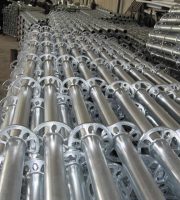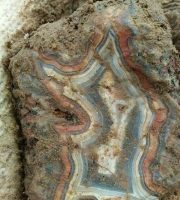36, the loan services purchased by ordinary taxpayers shall not be deducted from the output.
In practice, in order to ensure that the invoice amount is consistent with the project settlement, the deferred payment shall be charged There are two ways to invoice the payment interest: one is to invoice the deferred payment interest separately.
The reason is that although the deferred payment interest is regarded as non price expenses in value-added tax, it is allowed to issue construction service fee However, the essence of non price expenses is not the project price, but the fund occupation fee, which does not belong to the project settlement.
For the unpaid project funds, Article 17 of the interpretation of the Supreme People’s Court on the application of law in the trial of disputes over construction contracts of construction projects (FSH [2014] No.) stipulates the calculation and payment standard of interest: “If the parties have agreed on the calculation and payment standard of interest on the unpaid project price, it shall be handled in accordance with the agreement; if there is no agreement, the interest shall be calculated in accordance with the interest rate of similar loans for the same period issued by the people’s Bank of China.” How should the deferred payment interest collected by the construction enterprise and the deferred payment interest paid by the real estate enterprise be handled by finance and taxation? I.
Select the tax classification code, tax rate or collection rate of construction services, and the product name is customized as “deferred payment interest”, that is, “construction services – deferred payment interest” Second, the invoice is divided into two lines.
In addition, the cost of new houses and supporting facilities shall be deducted according to the actual cost of real estate development projects.
Therefore, the scope of extra price charges is wider than that in the detailed rules for the implementation of the Provisional Regulations on value added tax More broadly.
how should the construction party pay value-added tax when collecting deferred payment interest? According to the Interim Regulations on value-added tax The first paragraph of Article 6 stipulates that the sales volume refers to the total price and extra price expenses charged by the taxpayer to the purchaser for the sale of goods or taxable services, and the taxpayer shall report value-added tax to the State Taxation Department.
36, hereinafter referred to as CS [2016] No.
how to deal with the corporate income tax and accounting of the deferred payment interest received by the construction enterprise? The accounting treatment of the deferred payment interest received by the construction enterprise mainly has the following four views: first, since the interest income and the main business income are the same item, the same tax rate or collection rate, they should be regarded as the main business income together; second, the interest income does not belong to the main business income and should be accrued Third, according to the principle of “reciprocity”, since the cash discount paid in advance is included in the financial expenses, the interest deferred shall also be included in the financial expenses; fourth, the interest deferred is the income of breach of contract and shall be included in the non operating income.
For extra price expenses, the first paragraph of Article 12 of the detailed rules for the implementation of the Provisional Regulations on value added tax clearly explains that extra price “shall be charged to the purchaser” According to the notice of the Ministry of Finance and the State Administration of Taxation on comprehensively promoting the pilot of replacing business tax with value-added tax (CS [2016] No.
is it allowed to deduct the deferred payment interest paid by real estate enterprises? According to Article 27 of CS [2016] No.
The interest deduction of land value-added tax is calculated separately and deducted separately..
If pre tax deduction is not allowed, in fact, it denies the essence of cost compensation by paying interest and liquidated damages, which is bound to increase the tax cost of taxpayers.
is a non price fee and is based on the applicable tax rate or collection rate of the main tax category and tax items Calculate and pay value-added tax, and allow to issue special VAT invoices of the same item, the same tax rate or collection rate, and in essence, it is not to purchase “loan services” Therefore, the input tax can be deducted from the special VAT invoice issued by the real estate enterprise after obtaining the deferred payment.
IV.
Obviously, the interest income of default deferred payment collected by construction enterprises belongs to the extra price expenses of value-added tax and is an integral part of the tax basis of value-added tax.
Detailed rules for the implementation of the Interim Regulations on value added tax It is emphasized that out of price charges include out of price charges “charged to the buyer”.
The reason is that the construction service fee invoice obtained from the deferred payment of project interest expenditure is actually the increase of the construction cost of the construction party due to breach of contract, although However, it is formally expressed as compensation by paying interest and liquidated damages, but it is actually a part of the project cost.
Second, where the interest expense cannot be calculated and apportioned according to the transferred real estate project or the certificate of financial institution cannot be provided, the real estate development expenses shall be calculated according to the “amount paid for obtaining the land use right” and “real estate development cost” Deduction shall be calculated within 10% of the sum of the amount.
36 out of price charges refer to charges of various nature charged out of price, and “charged to the buyer” is no longer emphasized , the items of extra price charges are no longer listed, and the reverse exclusion method is adopted, that is, except those listed that do not belong to extra price charges, they all belong to extra price charges.
And The input tax on the investment and financing consulting fees, handling fees, consulting fees and other fees directly related to the loan paid by the taxpayer to the lender after receiving the loan service shall not be deducted from the output tax.
However, the deferred payment interest charged for the sale of goods, services, intangible assets, real estate, etc.
The first line issues the invoice according to the actual project settlement; the second line selects the tax classification code, tax rate or collection rate of construction services to issue “deferred payment interest” III.
Other real estate development expenses shall be calculated according to the “amount paid for obtaining the land use right” and “real estate development cost” The deduction shall be calculated within 5% of the sum of the amount.
Another view is that the deferred payment interest paid can not be deducted before land value-added tax.
If a real estate development enterprise borrows from both financial institutions and other borrowings, the above two methods cannot be applied to the calculation and deduction of real estate development expenses.
Therefore, the liquidated damages for delayed payment due to capital problems Interest expense: the construction and installation invoice issued by the construction company in the form of non price expenses shall be included in the development cost as a deduction item of land value-added tax and enjoy additional deduction.
whether the real estate enterprise pays the deferred payment interest of the construction enterprise to allow the pre tax deduction of land value-added tax and whether the additional deduction is allowed? During the land value-added liquidation, the pre tax deduction of interest expenditure in the financial expenses of the real estate enterprise can be divided into two cases: one is where it can If it is enough to calculate the allocation according to the transferred real estate project and provide the certificate of financial institution, it is allowed to deduct according to the facts, but the maximum amount shall not exceed the amount calculated according to the loan interest rate of the same kind of commercial bank in the same period.
While CS [2016] No.
Therefore, the deferred payment interest collected by construction enterprises should be calculated and paid value-added tax according to the taxable items and value-added tax rate or collection rate applicable to construction enterprises.
However, no matter what accounting item the interest income is included in, it will not affect the current profit and loss of the enterprise, nor will it affect the final result of enterprise income tax.
36) Article 37 stipulates that extra price fees refer to fees of various nature collected outside the price, but do not include the following items: (1) government funds or administrative fees collected on behalf of the client and in line with the provisions of Article 10 of these measures; (2) funds invoiced in the name of the client and collected on behalf of the client.
V.
However, no matter which account is included in the deferred payment interest, VAT “Price tax separation” Yes.
In the issuance of invoices, the same tax code as the construction service shall be selected for invoicing, and the VAT shall be calculated according to the same tax rate or collection rate as the construction service.
Second, construction enterprises collect deferred payment interest How to issue invoices? The interest charged for deferred payment does not belong to the loan service, but belongs to the extra cost of providing construction services.
Is the interest paid for delayed payment of project funds allowed There are two different views in practice: one view is that if the construction service fee invoice is obtained from the deferred payment interest, it can be deducted before the land value-added tax and can be additionally deducted.



